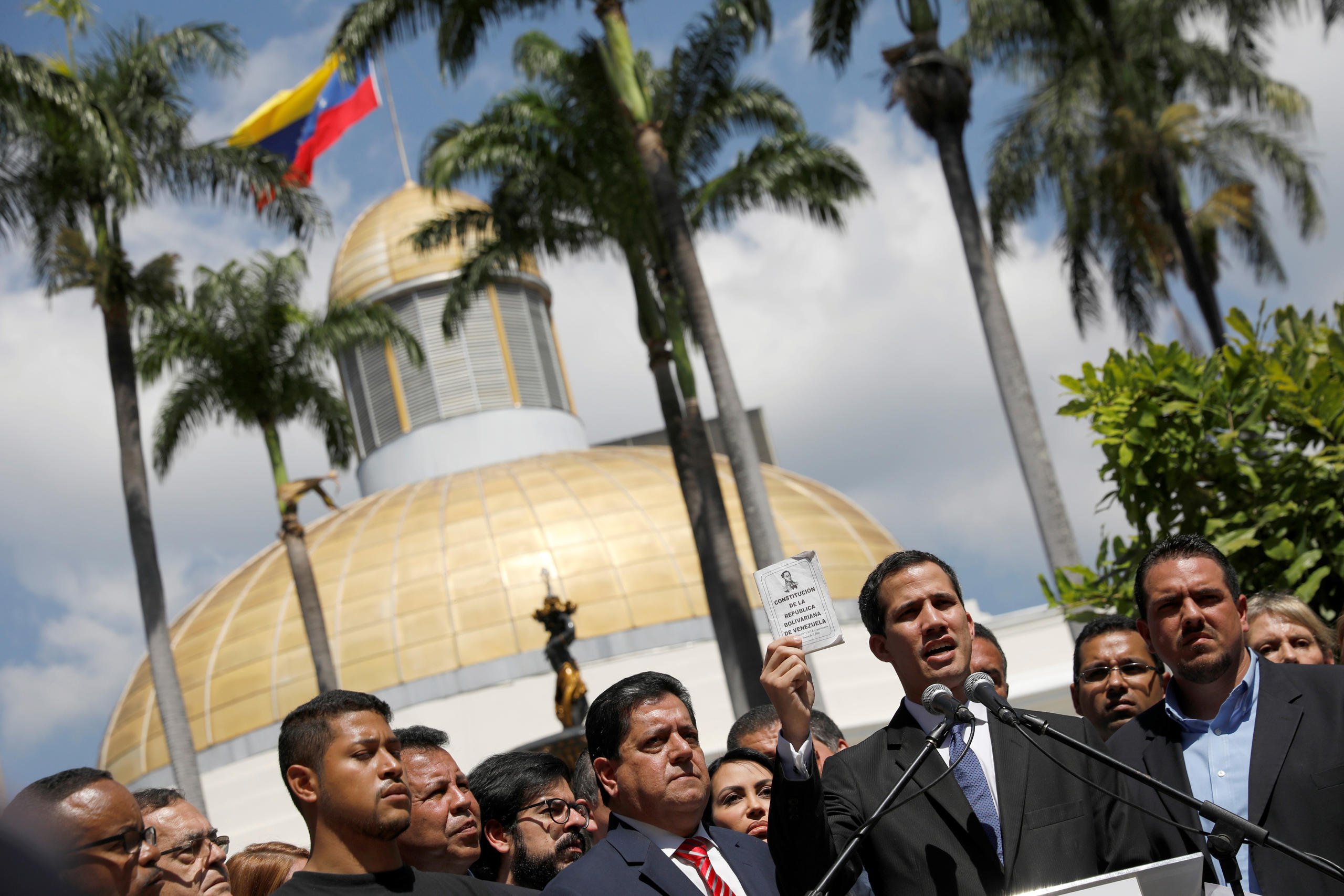Swiss concerned about the deepening crisis in Venezuela

Venezuela needs a government that acts with public spirit and cracks down on widespread corruption to overcome the current crisis, says Pierino Lardi an expatriate Swiss who has been living in the South American country for two decades.
Lardi, a former banker, was president of the Swiss-Venezuelan chamber of commerce until 2016. The 70-year old Lardi represents Venezuela in the Organisation of the Swiss Abroad (OSA).
In an interview with swissinfo.ch, Lardi agrees that Venezuela needs more democracy beside a policy for the public good.
Lardi says there are clear indications that the government of Nicolás Maduro is under pressure, challenged by the parliamentary leader Juan Guaidó, who declared himself president earlier this week.
“The question is which one of the two presidents has control over the armed forces and police,” Lardi told swissinfo.ch, adding that the Maduro government has a lot to lose and is unlikely to give in easily.
“But it was a strong signal that the opposition marches were attended by so many soldiers who symbolically took off their helmets and put their guns down,” he says.
Business
Lardi says most Swiss companies represented in Venezuela have had a hard time over the past few years, barely making a profit and even struggling to get paid for their products and services.
Despite the problems, Lardi says he is optimistic that Venezuela will soon be an important trading partner in Latin America again for Switzerland.
In 2017 Switzerland imported goods – primarily agricultural products – worth CHF3.9 million ($3.9 million), while exports to Venezuela amounted to around CHF76.3 million, according to the Swiss foreign ministryExternal link.
Swiss direct investment in Venezuela stood at CHF834 million in 2016, and more than 4,800 people in Venezuela were employed by Swiss firms.
Sanctions
Bilateral relations have been strained since Switzerland, in line with the European Union, imposed a series of economic sanctions against the Maduro government last March.
The move came in response to alleged human rights violations and a constitutional crisis in the South American country.
Venezuela’s opposition won a broad majority in the 2015 parliamentary elections, but Maduro’s allies on the Supreme Court stripped it of many of its powers.
Maduro was re-elected as president last year, but critics have described the vote as illegitimate and accuse him of converting Venezuela into a de facto dictatorship.
Public opposition against him gained momentum in 2016 with Guaidó, who is believed to be close to a jailed opposition leader, becoming the leader of the parliamentary speaker last year. He swore himself in as new president of Venezuela earlier this week.
Ambiguous tweet
A statement by a senior Swiss foreign ministry official and former ambassador to Venezuela, caused some irritation. Bénédict de Carejat published a tweet on Thursday suggesting Switzerland’s support for Guaidó.
#VenezuelaExternal link Die #SchweizExternal link erachtet die Nationalversammlung 🇻🇪 in Folge der demokratischen Wahlen von 2015 als legitim, sowie auch deren neugewählten Präsidenten #JuanGuaidóExternal link. Deren Freiheiten und Befugnisse müssen respektiert und deren Sicherheit gewährleistet werden. @EDA_DFAEExternal link pic.twitter.com/6q3pksa39VExternal link
— Bénédict de Cerjat (@SwissMFAamerica) 24. Januar 2019External link
However, a senior foreign ministry spokesman made clear that Switzerland does not recognise Guaidó as the country’s president.
“As a rule, Switzerland recognises only states, but not governments;” the spokesman said.
However, he said that Switzerland was following developments in Venezuela attentively and is concerned about the situation in the country over human rights, the division of powers, the rule of law, and democracy.
“Switzerland calls for a peaceful solution of the crisis and insists on political steps and the respect of the rule of law,” the spokesman added.
Speaking at the annual meeting of the Wold Economic Forum in Davos on Friday, Foreign Minister Ignazio Cassis added that Switzerland was offering its service to mediate in Venezuela, according to the Swiss news agency, Keystone SDA-ATS.
The ministry has warned of a worsening situation in the country and called on expatriate Swiss citizens to stay away from political meetings and demonstrations.
At the end of 2017, there were also more than 1,200 Swiss nationals living in Venezuela.

In compliance with the JTI standards
More: SWI swissinfo.ch certified by the Journalism Trust Initiative














You can find an overview of ongoing debates with our journalists here . Please join us!
If you want to start a conversation about a topic raised in this article or want to report factual errors, email us at english@swissinfo.ch.